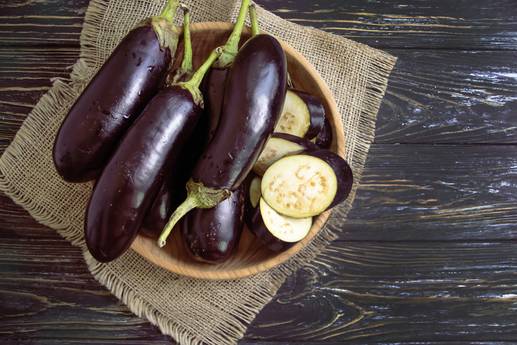Although raw food is considered healthy, it should only be prepared using certain foods, otherwise there is a risk of poisoning.
You should always eat these eight foods cooked, never raw.
Reading tip
1. Sprouts
Sprouts are natural products, which makes them more susceptible to germs. Manufacturers therefore usually print the warning on the packaging: “Not suitable for raw consumption”.
Tip for all sprout lovers: They taste best when blanched. But even then you should wash them thoroughly before preparing them.
Reading tip
2. Eggplant
Just like potatoes, eggplants also produce the weak neurotoxin solanine. In small quantities, solanine does not have serious consequences.
However, if you eat a lot of raw eggplants, you may experience headaches, gastrointestinal problems, nausea and even vomiting.
The German Nutrition Society (DGE) therefore advises against eating raw eggplants – and states that solanine can have drastic consequences.
Therefore, always prepare eggplants as pan-fried or oven-baked vegetables.
3. Green beans
Green beans (eg bush or runner beans) contain a poisonous protein compound called phasin. The consequences of this can be symptoms such as nausea, headaches, vomiting and diarrhea. Those who eat large quantities of raw green beans can even die from the poisoning.
Therefore, it is important to always cook beans in boiling water for at least ten minutes to destroy the toxic protein.
Be sure to throw away the used water afterwards because it may contain large amounts of phasin.
Reading tip
4. Rhubarb
Rhubarb is also not recommended raw. The reason: oxalic acid, which causes an unpleasant dull feeling on the teeth and can lead to gastrointestinal problems.
The substance is mainly found in the leaves and greener stem parts of rhubarb.
When cooked, rhubarb contains very little oxalic acid, which makes it harmless in normal quantities.
5. Black elderberries
When preparing black elderberries, the following applies: “Elderberries must be heated to over 80 degrees for a short time in order to render the sambunigrin and other indigestible substances harmless,” says nutrition expert Susanne Moritz from theBavarian Consumer Center.
Why are these measures necessary at all? The actually healthy berries also contain the poison sambunigrin, which can cause vomiting, diarrhea and chills.
Photo gallery: The best foods for a healthy intestinal flora
6. Eggs
Because raw eggs can contain salmonella, they are considered “high-risk foods.” The Federal Institute for Risk Assessment emphasizes that illnesses caused by raw eggs have “decreased considerably” in recent years.
If you want to be on the safe side, you should still not eat them raw.
In summer, salmonella poisoning is particularly common because the germs like it warm. Other products that contain raw eggs, such as mayonnaise, are also potentially contaminated.
7. Chicken
When it comes to poultry, it is particularly important that it is thoroughly cooked before eating. This is partly due to salmonella, which could cause poisoning, but foodborne infections caused by so-called campylobacter bacteria are much more common.
Even small numbers of the rod-shaped bacteria can lead to foodborne infections. Symptoms such as fever, nausea and diarrhea can occur.
Sufficient cooking is therefore essential: According to the Federal Institute for Risk Assessment, a food is considered safe if the temperature inside it is at least 70 degrees Celsius for a period of two minutes.
Reading tip
8. Raw dough or flour
Anyone who eats the dough sometimes suffers from diarrhea and stomach cramps afterwards – even if it is a vegan recipe. This is because it is not eggs that are to blame, but flour: it could contain pathogenic germs.
Contamination can occur when animals defecate on the grain and thereby pass on pathogens. If the grain is later ground into flour, the germs migrate onto the baking tray.
The trendy food cookie dough – raw cookie dough – should therefore be enjoyed with caution. However, if you buy ready-made cookie dough, you generally don’t have to worry: most manufacturers use heat-treated flour.
Hide sources
Sources
German Nutrition Society (2010): Solanine in potatoes, accessed on September 11, 2024: https://www.dge.de/uploads/media/DGE-Pressemeldung-aktuell-10-2010-Kartoffel-Solanin.pdf
Verbraucherzentrale Bayern (2018): Why shouldn’t you eat elderberries raw?, accessed on 11.09.2024: https://www.verbraucherzentrale-bayern.de/wissen/haetten-sies-gewusst/warum-darf-man-holunderbeeren-nicht-roh-essen-29324
Reading tips

